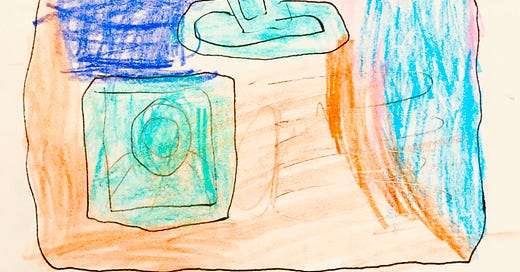Team Brand vs Identity
This is not a post about how brand and identity are the same thing, just from different viewpoints.This is not a post about how one derives from the other. This is not a post about how they are both equally important. This is not a post encouraging you to focus on both as they serve different purposes.
Yes, they are 2 sides of the same coin. Yes, they feed into and reinforce each other. Yes, they both matter. Yes, they both need your attention.
But this is not that post.
This is a post about how, during times of change and periods of scale, one is multiple orders of magnitude more critical than the other. This is a post about identity being 99% of the equation, and brand coming in 2nd, at a measly 1%.
This is a post about your team's identity being the key to navigating change, overcoming uncertainty, and flourishing amidst chaos.
Taking a step back, it helps to define the 2 terms (in a corporate context):
Identity: your team's own perception of how and where it fits
Brand: the external perception of how and where your team fits
But it's all about branding these days, right?
Sort of.
It's all about self-branding, which makes sense for you as an individual. But you can't stretch self-branding across teammates. There's no shared connective tissue there, which is what identity provides.
As for the outward perception (i.e. brand) of your team, it's hard to unify - it's very much in the eye of the beholder, whether that be your customers or stakeholders or partners. It's hard to put all those external opinions together cohesively, which is why having a strong internal ethos (i.e. identity) is critical.
In many ways, this is a post that only makes sense if you've been there, done that; if you've had to forge an identity in order to have an impact as a group. A strong team identity is the result of tribal knowledge, shared context, and collective delivery; it takes time, effort, and focus. But once you have it, it becomes very difficult for anyone to make a dent in it, whether it's team newcomers or outside parties.
Particularly during chaotic times, your team can rely on a strong, shared identity to manage through turmoil. Specifically, identity gives you the following advantages that brand doesn't:
pattern matching situations (based on past experiences) to frame decisions effectively
a mutually-agreed-upon decision-making framework (based on established norms) to execute efficiently
a communication model that encompasses both breadth and depth and eliminates repetition, confusion, and clarification
So. If you're starting a new team, spend some upfront time thinking about how the identity you establish can set the group up for success. If you're taking over an existing team, suss out their identity to ensure you approach things the right way. If you're managing a team through a transition, make sure you understand the flexibility of their identity.
In short, the badge you give yourselves is way more important and enduring than the labels others may throw at you.
childish drawing / interpretation




